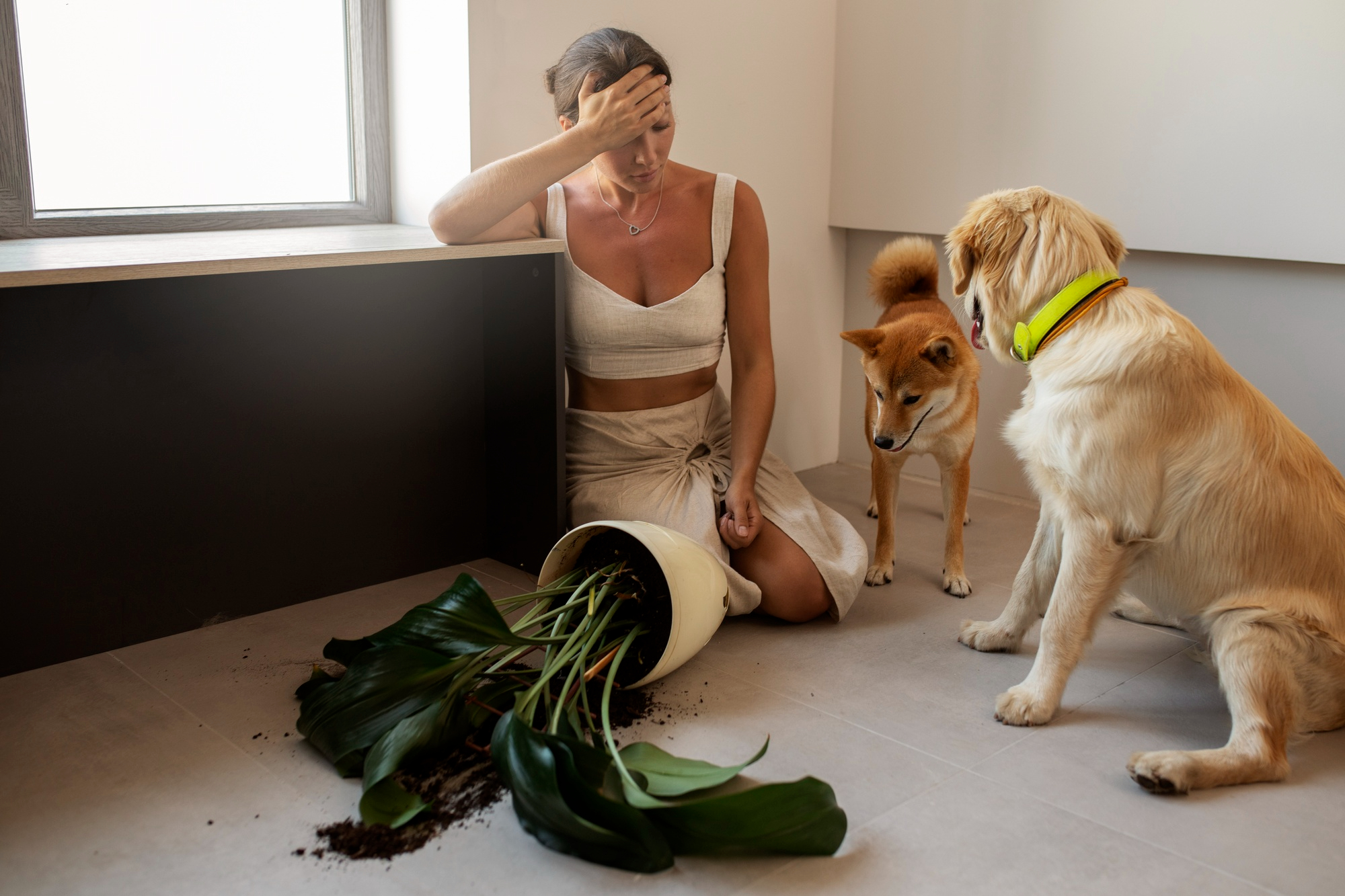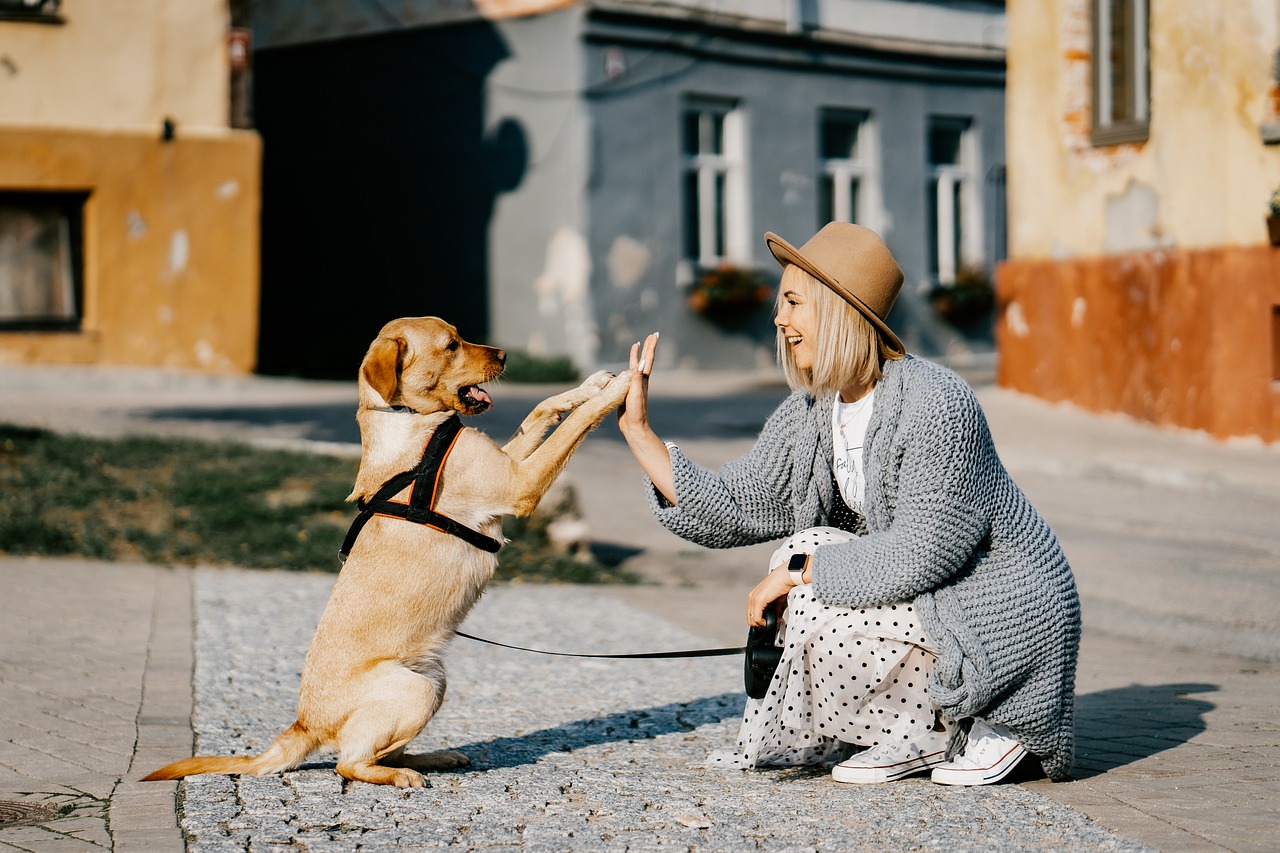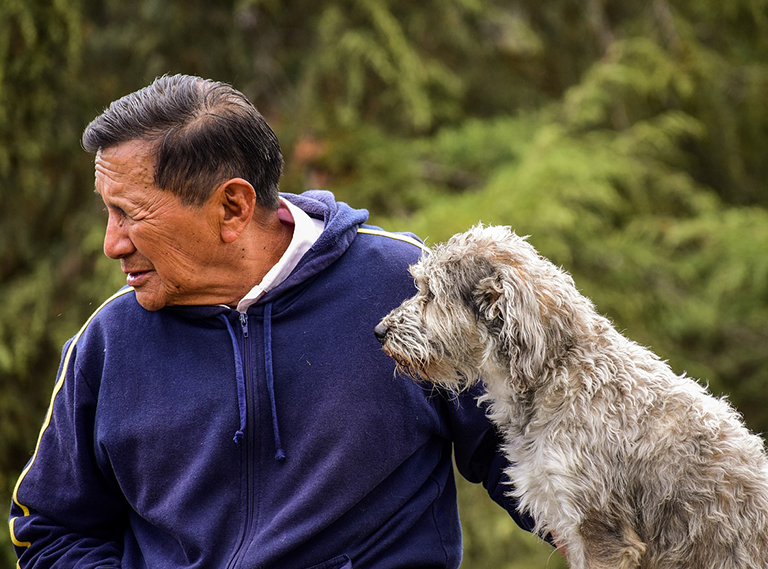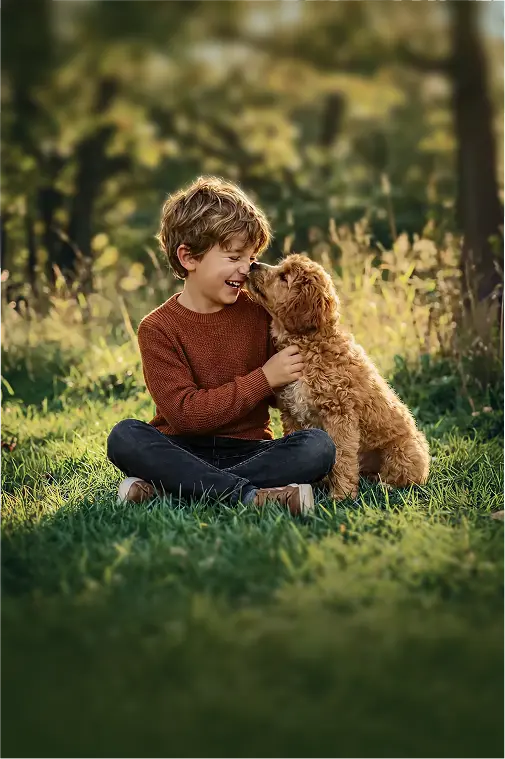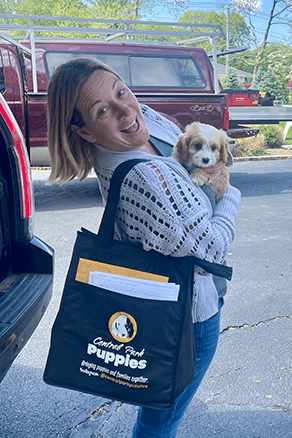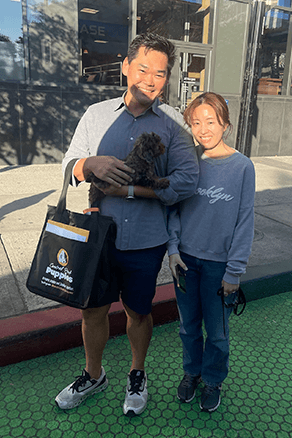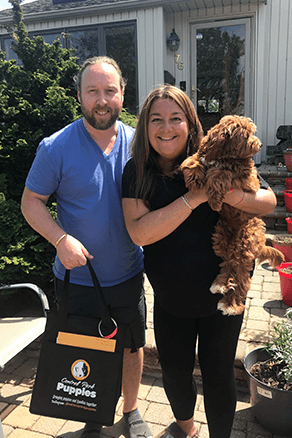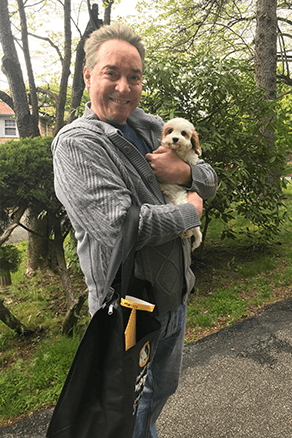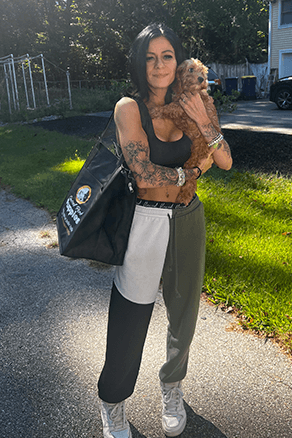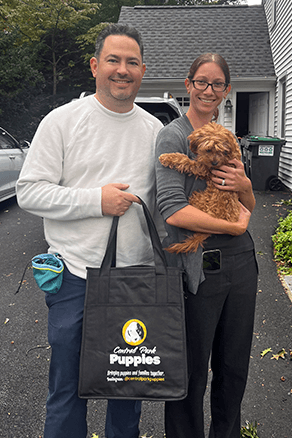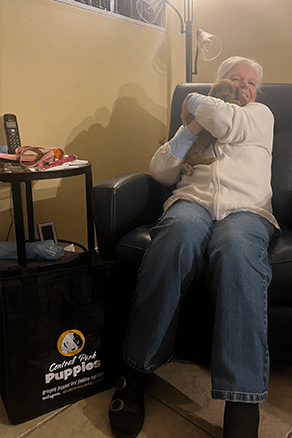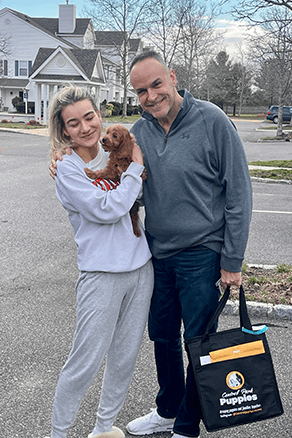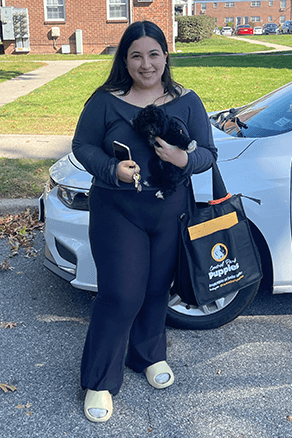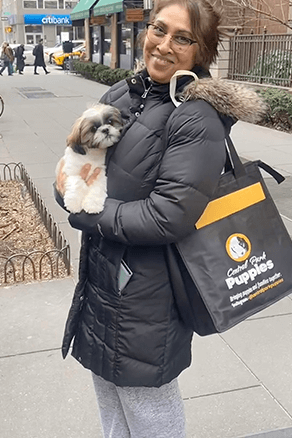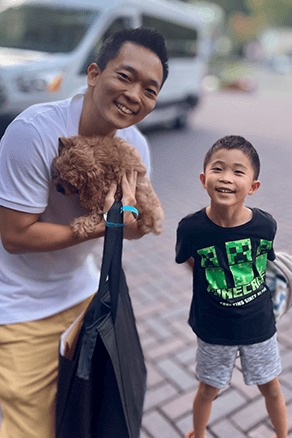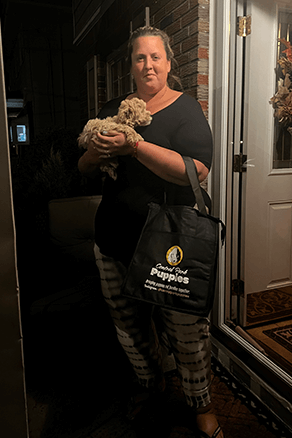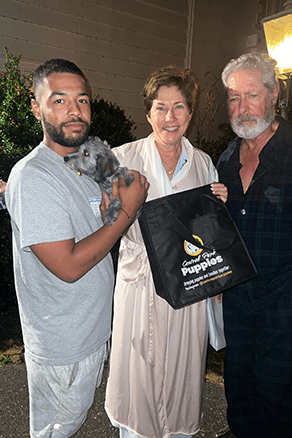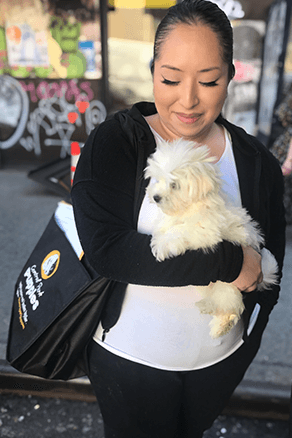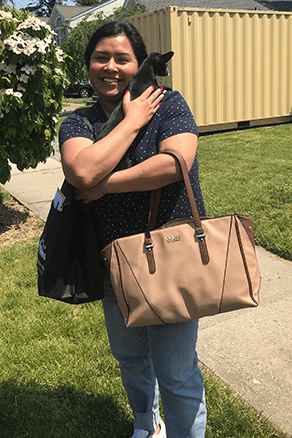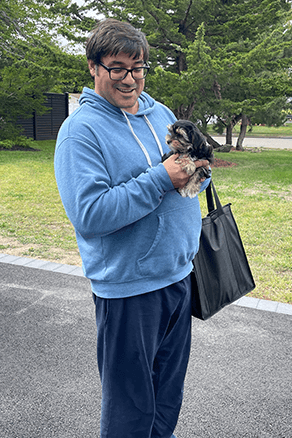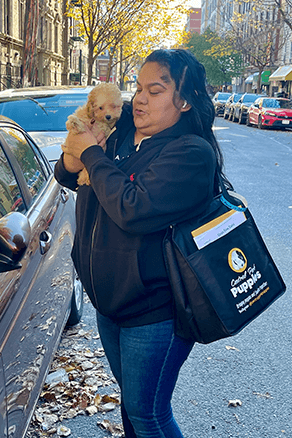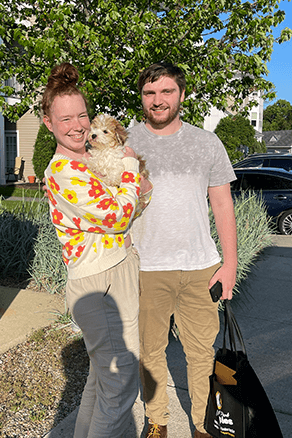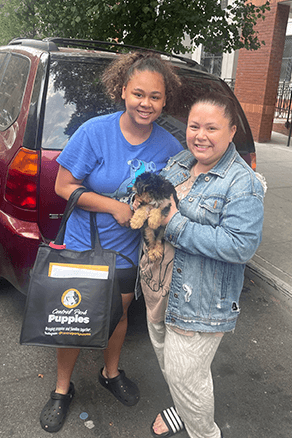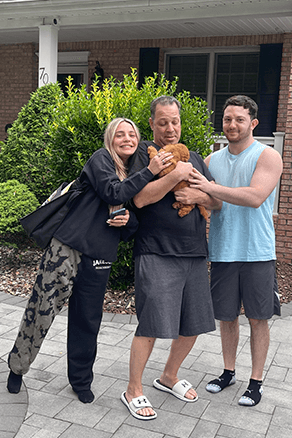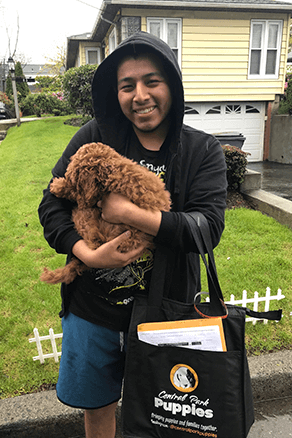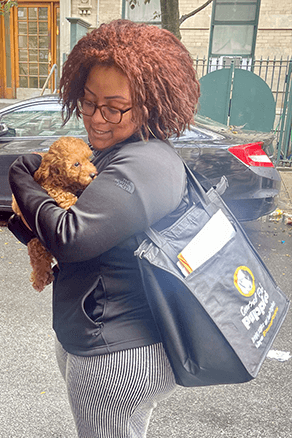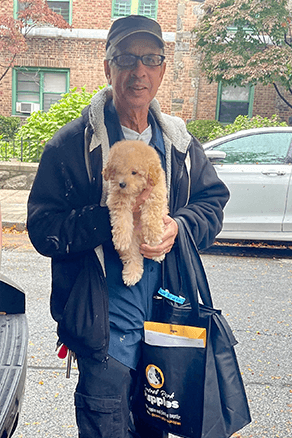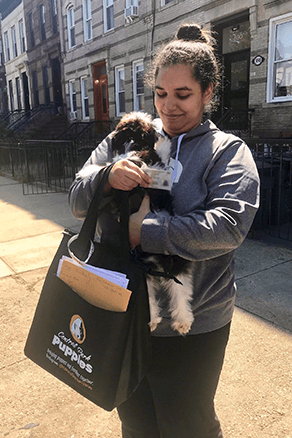Introduction
Many puppy owners are unaware of fear periods in puppy development and don't understand why their pup is jumpy and apprehensive. Fear periods are expected for adolescent dogs and can be managed with patience and understanding. In this article, we'll discuss why they happen and what you can do to help your pup through this stage of a dog's life.
What Are Puppy Fear Periods?
Puppy fear periods are a natural part of a puppy's development. Generally, dogs will experience two different fear periods before reaching adulthood.
The first is typically between 8-11 weeks old, and the second fear period occurs between 6-14 months old. During these times, puppies may become more sensitive to their environment and display fearful behaviors such as recoiling, trembling, or hiding.
Owners need to be aware of these fear periods to provide their pups with the support and reassurance they need during this time.
Why does this happen in dogs?
Puppy fear periods are a normal part of puppy development and usually occur twice during the first year of a dog's life.
The first fear period generally occurs between 8-11 weeks, when puppies are separated from their mother and introduced to their new owners and homes. During this time, puppies may become anxious or hesitant in response to new people, places, or objects.
The second fear period usually occurs between 6-14 months, when adolescent dogs may spook at the slightest things. Puppy owners should be aware of these fear periods and take extra care to ensure that their pup is not overwhelmed by too much stimulation or unfamiliar situations.
With patience and understanding, owners can help their pup navigate these fear stages with minimal stress.
How long do they last?
- Puppy fear periods generally last between 2-3 weeks; however, some dogs may have a more extended adjustment period.
- During this time, puppies may become apprehensive or scared when interacting with other dogs and unfamiliar people, places, and objects.
- Fear stages can vary in intensity and duration, depending on the particular pup and their environment.
- Pet parents should take extra care to ensure puppies socialize appropriately during this time to minimize their fear behaviors.
- Dog owners should also be aware that adolescence typically brings a second fear period at around 6 to 14 months old.
Are Fear Periods Normal for Puppy Development?
Yes! It is essential to understand that fear periods are typical for puppy development and are not a cause for alarm.
Young dogs may exhibit fearful body language, such as cowering, trembling, or hiding. Also important to note is that herding breeds may have a more pronounced fear period than other breeds because of their genetic heritage.
Puppy owners should take extra care to provide their pups with positive experiences during this time to help them feel safe and secure.
The behaviors you want to become ingrained are those that have positive associations. Puppies can learn to overcome their fear if given supportive and patient care from their pet parents during this period.
However, if you notice any signs of extreme anxiety or distress in your pup during a fear period, it is best to consult with your veterinarian or a professional dog trainer for advice on how to help them.
Characteristics of Fear Periods in Young Dog
Fear periods are a normal part of puppy development, during which a pup's behavior may change as its brain is re-wired for adulthood.
This can manifest in sudden fear or the inability to cope with new situations, objects, or people. For example, a new puppy may become scared when faced with a vacuum cleaner or other strange noises.
Protection breeds, such as shepherds and guard dogs, often have more pronounced fear periods than other breeds due to their genetic predisposition to being watchful and protective.
It is essential to reward positive behaviors and support socialization, as these will help build confidence in puppies. Positive socialization can also help puppies understand acceptable activities and encourage good behavior.
Understanding fear stage characteristics and being patient with your pup will allow you to help them work through their fear periods and grow into happy, confident adult dogs.
What are the most common symptoms of a fear period?
During puppy fear periods, owners may notice that their dogs act much differently than they have been accustomed to.
Here are some common symptoms of fear periods in dogs:
- Crouching and walking low to the ground
- Whining, barking, or excessive panting
- Freezing in place or refusing to come out from own backyard
- Urinating and defecating in the house
- Destructive behaviors such as tearing up furniture
To help your dog overcome their fear period, providing positive experiences when they walk past something that scares them is essential. It is also normal for puppies to take their own pace when exploring new places.
And remember that regular vet visits can also help identify any underlying medical conditions that may be causing your dog's fear. This is not likely, but it's still important to rule out any medical issues that could be contributing. There is no need to make a special appointment; just make sure your regular check-ups are up to date and speak with your vet if you have any concerns.
The 8-11 Week Fear Period
The 8-11 Week Fear Period is a period of sudden changes in behavior for most puppies. During this time, they experience a flight instinct and become fearful of unfamiliar items, individuals, and even everyday items like brooms.
This fear can come on suddenly and without warning. Trying to force interaction with the puppy should be avoided during this period as it may cause further distress.
Most dogs will outgrow this fear by the end of their first year, but knowing the 8–11 Week Fear Period will allow you to understand and respond positively to your pup.
The 6-14 Month Fear Period
The 6-14 month period is when puppies become adults and begin perceiving things differently. During this time, their focus shifts from inward to outward, and they become more aware of their environment. This can result in behavioral issues such as anxiety and fear, even urination in new settings or around people.
This fear is caused by an environmental contrast that can confuse pups and make them feel insecure. It can also lead to a painful experience if the dog does not know how to respond correctly, leading them into a state of high alert and afraid of the unfamiliar. Sometimes traumatic experiences during this period can change their perception of life forever.
Providing socialization opportunities with plenty of positive reinforcement during this period is critical, so your pup learns healthy coping techniques while maturing into an adult dog.
The 7-month-old puppy scared of everything
When a 7-month-old puppy is scared of everything, it is likely going through its fear period. This can begin at around 8-11 weeks of age and last until 6-14 months when the pup matures into an adult dog.
During this period, puppies may become scared even of the silliest things like fire hydrants or strangers. It is vital to provide socialization opportunities and positive training during this time so they can be comfortable in their environment.
Bonding with your pup through playtime, treats, and cuddles can help them gain confidence and address their fears. Although some fearful behaviors may not be cured completely, your puppy can learn to navigate their world with more assurance.
Note: if barking or other excessive behaviors persist, it's best to consult a professional trainer.
The 9-month-old puppy fear stage
Around nine months of age, puppies may enter a fear period where they become anxious and display behaviors such as cowering, hiding, or backing away when startled.
This natural stage can be disconcerting for owners who may have difficulty figuring out how to socialize their puppy during this time. Fortunately, the fear period is typically short-lived, and several strategies can help puppies navigate through it.
If you're wondering, "How do I socialize my puppy with fear periods?" the answer is to provide plenty of positive reinforcement for desired behaviors. Puppies need consistent rules, routines, and boundaries to understand what is expected of them.
An equally common question for owners dealing with puppy fear is, "Do anxious dogs get better with age?" Thankfully, the answer is yes! Puppies typically outgrow the fear period by the end of their first year, although they may still display fear behaviors in certain situations.
Training Through Fear Periods
Here are some steps owners can take to help train their puppy through fear periods:
- Remain patient and understanding - puppies need more time and consistency during this period and will respond better to gentle, positive training methods.
- Provide socialization opportunities - Puppies need plenty of chances to interact with other people and dogs in a safe and controlled environment.
- But, never force the puppy into a situation they are scared of or uncomfortable with - slowly introduce them to new places, people, and experiences at their own pace.
- Use positive reinforcement, such as treats, to incentivize desirable behavior - this will help them remember what behaviors are accepted and which ones they should avoid.
- Be consistent in your approach, so the puppy gets used to it over time. Puppies learn from repetition and will eventually become more comfortable.
- Be confident. Puppies look to their owners for cues, so owners must project an air of confidence and assurance when dealing with their dog's fearful behaviors.
- Remember that this adolescent fear behavior is normal, even if it can be unsettling. Puppy owners should be aware of the fear period and remain calm when their pup shows anxiety.
By providing a safe, secure, and nurturing environment for your pup and using the above strategies, owners can help their puppy navigate the fear period with minimal stress.
How to Help your Puppy Through a Fear Period
Here are some tips to help your puppy through a fear period:
- Stay focused outward rather than on the pup's behavioral issues.
- Create healthy environmental contrast by exposing your pup to different situations, places, and people during their fear period.
- Help them perceive things less fearfully by providing reassurance and comforting language.
- Ensure that your actions do not cause even more stress.
- Remain on high alert for signs of fear - it can be challenging to recognize this stage in young puppies.
- Be aware of anything making your pup afraid, and avoid these triggers.
- If they have been exposed to traumatic experiences, ensure they have plenty of love, patience, and support.
How Do You Bond with a Scared Puppy?
Bonding with a scared puppy can be challenging, but there are some tactics owners can use to make the process easier.
Remain patient and understanding.
During fear periods, owners must remain patient and understanding, as fearful animals often need more time and greater consistency in training.
Never force them into an uncomfortable situation.
It's also important to never force an animal into a situation they might find scary or uncomfortable, as this could have long-term impacts on their behavior.
Use positive reinforcement through treats.
Positive reinforcement through treats is also crucial during these times. By providing treats when the puppy does something good, you will show them that desirable behavior is rewarding and encourage them to continue doing it in the future.
Remain consistent.
Sticking to the same approach with your pup is also essential for helping them become more comfortable and secure in their environment. Puppies learn from repetition, so consistent behavior will help them become more familiar and trusting.
You can help your pup transition into everyday life in a safe and trusting environment with patience and consistency.
FAQs
What is the fear stage in puppies?
The fear stage in puppies is a natural period of development during which puppies can display fearful behavior, such as cowering, hiding, or backing away from new people or situations. Puppies typically outgrow this stage by the end of their first year, although they may still display fear behaviors in certain situations.
What does it mean when your puppy is scared of everything?
Puppies often exhibit fear when faced with unfamiliar situations due to their "fear period," which usually corresponds with growth spurts and sexual maturation in intact puppies. This phase is a normal part of puppy development and serves as an essential protective mechanism for the pup.
How long do puppy fear periods last?
Puppy fear periods typically last anywhere from 4-14 weeks of age but can differ depending on the individual pup. During this period, puppies often become fearful of new or unfamiliar people, animals, and environments as they develop into young adults. It's essential to be mindful of this stage to better help your puppy through it.
How do you deal with a puppy fear stage?
Fortunately, there are many ways to help a scared puppy overcome their fears:
- Create a safe space for them to get used to their surroundings
- Do not punish fear
- Positive training experiences are great for puppies to become more confident and comfortable in different scenarios.
Can a puppy outgrow fear?
Yes, a puppy can outgrow fear. The process is called 'fear imprinting.' Puppies can learn to overcome their fear. Puppy fear periods typically occur between 8-10 weeks when dogs are exposed to new environments and experiences. During this time, puppies may become overly fearful and display signs such as growling, barking, or hiding. If owners remain calm when their pups are experiencing these stages, it is much more likely that the dog will grow into a confident adult.
Final Thoughts
Puppy fear periods are an important stage of development for young pups, and pet owners need to be mindful of this. Although these periods can be difficult, with patience and proper care, puppies can outgrow their fears and become confident adult dogs!
To ensure your pup has the best experience during their fear period, provide positive reinforcement when they do something right, and prevent common triggers such as introducing too much all at once or isolating them in unfamiliar environments.
When your pup feels scared, give them time to adjust and provide reassurance through comforting language and treats. Above all, remain consistent in your approach to help your pup transition into a happy and confident adult dog. You've got this!


